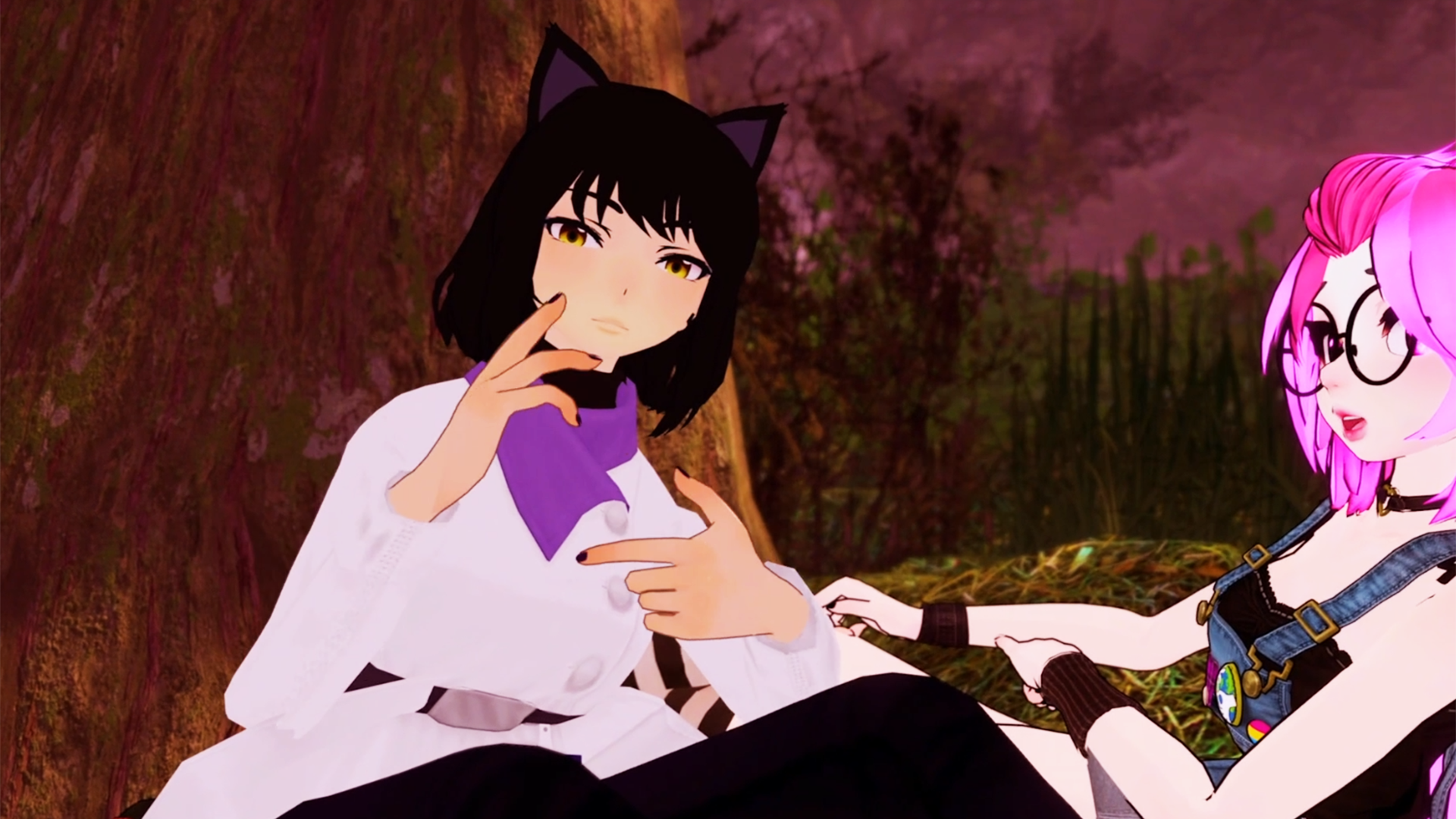The VRChat documentary gets VR right, but already feels old
We Met in Virtual Reality takes place entirely in VRChat, but I wish it didn't.

We Met In Virtual Reality, HBO's documentary that was filmed entirely in VRChat, struggles to capture the reality outside of itself. VRChat has been ahead of its time since 2014: it's the non-corporate metaverse for catgirls and memes. It's a first-person online game where you can do just about anything you'd do in real life as long as its community of developers and animators can make it. You've probably seen clips of it featuring everything from VTubers, Sonic characters, and anime protagonists.
Naturally, it attracts a lot of people that, for whatever reason, don't feel comfortable in the real world. VRChat is a space where gender, sexuality, and especially bodies, are truly fluid, and, as a result, it's incredibly queer. It's not Facebook's vision of VR, or as People Make Games put it in May, the "sexless, Zuckerbergian, brand-friendly presentation" of Meta's billion dollar metaverse. It's a place for people to explore their identities, meet others, or painstakingly recreate big box stores and roleplay as the cashiers.
To its credit, We Met in Virtual Reality is able to communicate the charming absurdity of VRChat over its one hour and 33 minute runtime. But sincere, documentarian footage of anime characters and furries vibrating through their chairs isn't the whole story. Director Joe Hunting locks the virtual camera on a handful of people who spend most of their lives in the online game and who see it as a necessity after Covid locked them inside.
Hunting follows a woman that teaches ASL to deaf and hard of hearing players every day of the week in a replica of a college classroom, two couples who are thousands of miles apart in the real world, and various others who found some part of themselves in the game. We Met in Virtual Reality is a serviceable depiction of the sorts of relationships and activities found in VRChat, but its insistence with only pointing the microphone at its most devoted players, narrows and, frankly, dates the point it's trying to make.
As People Make Games made clear in its much shorter documentary about VRChat, the game is messy and its players are striated. VRChat, at its worst, is an insulated space where racism goes unpunished and underaged players are a few clicks away from pornography and abuse. In this way VRChat resembles the early internet, before Google and Twitter and Facebook and the methods of control—good and bad—that platform holders have placed on how you interact with others online came to be. An almost completely positive depiction of VRChat is to misunderstand what's actually going on in its largely unmoderated world and how it appears to those outside it.
We Met In Virtual Reality, with its persistent affirmations about the freedom of virtual reality, doesn't give itself the tools to tackle the ways a game that is technically playable by all for free, but is most effective under an expensive VR headset, defines the type of people who have access to regularly engage with it in the ways the film is most interested in. Last week, VRChat players pushed back against the addition of Easy Anti-Cheat, a technology that breaks accessibility mods that people use to add things like closed captions. We Met in Virtual Reality never asks its subjects what a future looks like for a social platform that might buckle from the pressure to clean itself up with decisions that could prevent it from being a place for everyone.
As a series of stories about people, We Met in Virtual Reality works. It finds surprisingly beautiful shots of the game world's often flat, jittery look and never slips on portraying the people in it respectfully. But those stories have been happening throughout online gaming's history, in more rudimentary spaces. When the world's largest companies are spending billions of dollars on their own version of VRChat, it's clear that most people are past the need to see how online relationships aren't some strange, rare thing that deserves a 90-minute inspection. What's important now is to show how platforms where players have more autonomy like VRChat can adapt as Meta and others' vision for the metaverse leach the most hopeful parts of its creativity for profit.
The biggest gaming news, reviews and hardware deals
Keep up to date with the most important stories and the best deals, as picked by the PC Gamer team.
Tyler has covered videogames and PC hardware for 15 years. He regularly spends time playing and reporting on games like Diablo 4, Elden Ring, Overwatch 2, and Final Fantasy 14. While his specialty is in action RPGs and MMOs, he's driven to cover all sorts of games whether they're broken, beautiful, or bizarre.

